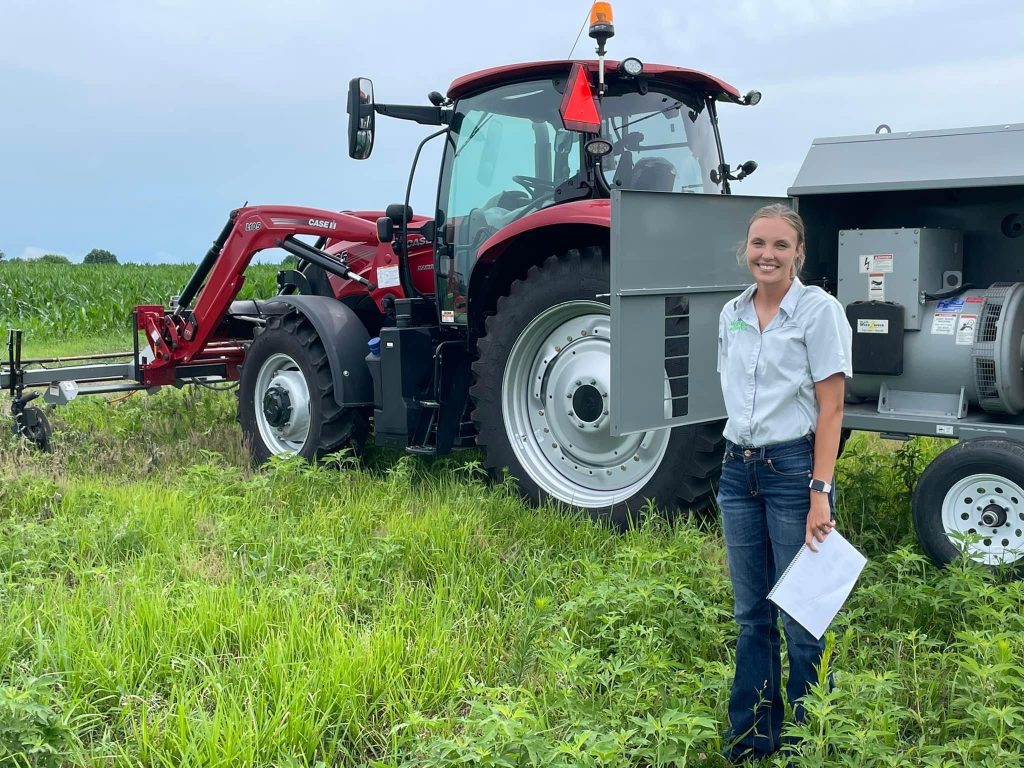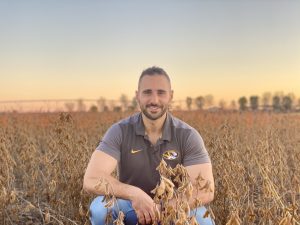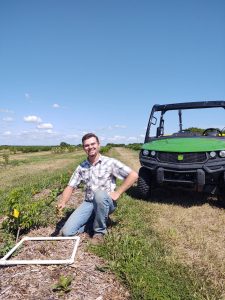Published on
Updated on

This story appears in our MU CAFNR/Agricultural Experiment Station Research Magazine.
Among its many strengths, the Missouri Agricultural Experiment Station (MOAES) provides research faculty with a wide variety of real-world conditions to test and develop strategies for agricultural production, based on the geographical and climatic differences in Missouri.
These CAFNR laboratories also provide graduate students with ample opportunities to lead their own projects, while still providing the same important research findings for farmers and producers across the state.
“Our students are a major part of the research engine that drives our research enterprise,” said Shibu Jose, CAFNR associate dean for research and director of the MOAES. “Not only do they play a vital role for the MOAES, they gain critical hands-on opportunities that can’t be duplicated in a laboratory setting.”

To go along with excellent hands-on learning experiences, graduate students at the four Research, Extension and Education Centers (REECs) have the opportunity to learn from outstanding advisors and mentors, many of whom are resident faculty at the REECs. Jose said he understands how important that relationship is, as he lived on a research farm when he was a graduate student at Purdue University. Later, as a resident faculty at an outlying research center at the University of Florida, Jose supported graduate students who conducted research on a farm six hours from campus.
“I was one of those graduate students who was out at a research farm to collect data for my projects,” Jose said. “I lived in a pop-up camper during the summers, and I wouldn’t trade that experience for anything. I learned so much about traditional agriculture in the United States – there was no better experiential learning experience than that.”
CAFNR has multiple faculty who mentor graduate students at the REECs. For example, Pengyin Chen, who held the David M. Haggard Endowed Professorship in Soybean Breeding at the Fisher Delta REEC, advised at least one graduate student a year during his time at the REEC. Caio Canella Vieira, now a research specialist at Fisher Delta working toward his PhD in plant, insect and microbial science, worked with Chen for a few years, including finishing his master’s degree in plant breeding, genetics and genomics.
“Dr. Chen was one of the superstar soybean breeders in the nation, with many successful soybean varieties and a hard-to-beat track record of scientific contributions and student training,” Canella Vieira said. “I was extremely fortunate to have the opportunity to learn from the best. His mentorship went beyond professional development – Dr. Chen truly cared about his students’ future and success.”
Much like Chen, Kelly Nelson is a resident faculty member at the Greenley Research Farm, part of the Northern Missouri REEC. Nelson is a professor in the Division of Plant Science and Technology and leads a handful of graduate students each year. Along with research opportunities, graduate students at Greenley have multiple opportunities to share their findings through field days and workshops.

“Getting a firsthand look at a crop in the field instead of in a laboratory setting is really important,” said Harpreet Kaur, a graduate student in plant, insect and microbial sciences who works with Nelson. “When you’re in the field, you see how things can change so quickly. You gain that understanding of how weather or a pest can harm a crop – and you have to think through the next steps in figuring out the issue.”
Graduate students have access to new technology through the MOAES, too. That technology comes in many forms, from large-scale equipment like tractors to smaller items like drones. Haylee Schreier, a senior research associate who defended her thesis and earned her graduate degree in May 2022, has used electricity to rid fields of weeds. Working with Kevin Bradley, a professor in the Division of Plant Science and Technology, Schreier studied how this technology controls weeds at the Bradford Research Farm, part of the Central Missouri REEC.
“The Bradford Research Farm has added a lot of value to my education,” Schreier said. “All of my field research was conducted at Bradford, and it gave me hands-on opportunities that allowed me to use technology in a unique way. Those opportunities outside of the classroom are where I gained the majority of my knowledge throughout my graduate degree.”
While the REECs provide graduate students an opportunity to take the lead on their own projects, there are also ample chances for students to be part of important grants that are moving Missouri agriculture forward. Andrew Thomas, a research assistant professor in the Division of Plant Science and Technology and resident faculty at the Southwest REEC, recently received a $5 million grant for a project centered on elderberry. Thomas and his team have numerous projects related to the specialty crop. Matthew Huchteman is one of the graduate students who is helping on the project.
“One of my favorite aspects of working at the Southwest REEC is that I get to work on a different project every day,” Huchteman said. “In fact, I’ll often divide my time between two or three projects on any given day. I stay fairly busy tending to my graduate research project, too. I am conducting a study on weed management in two elderberry plantings, one at the Southwest REEC and the other at the MU Horticulture and Agroforestry Research Farm in New Franklin. I have spent several hours preparing sites, applying weed treatments, planting elderberries and maintaining sites.
“I have also had the privilege of being directly involved in every aspect of establishing this elderberry planting from the very beginning. As a result, I have the skills, knowledge and resources necessary to establish a brand-new planting on my own. As I manage my research sites during the next two and a half years, I am sure I will continue to grow through hands-on experience.”